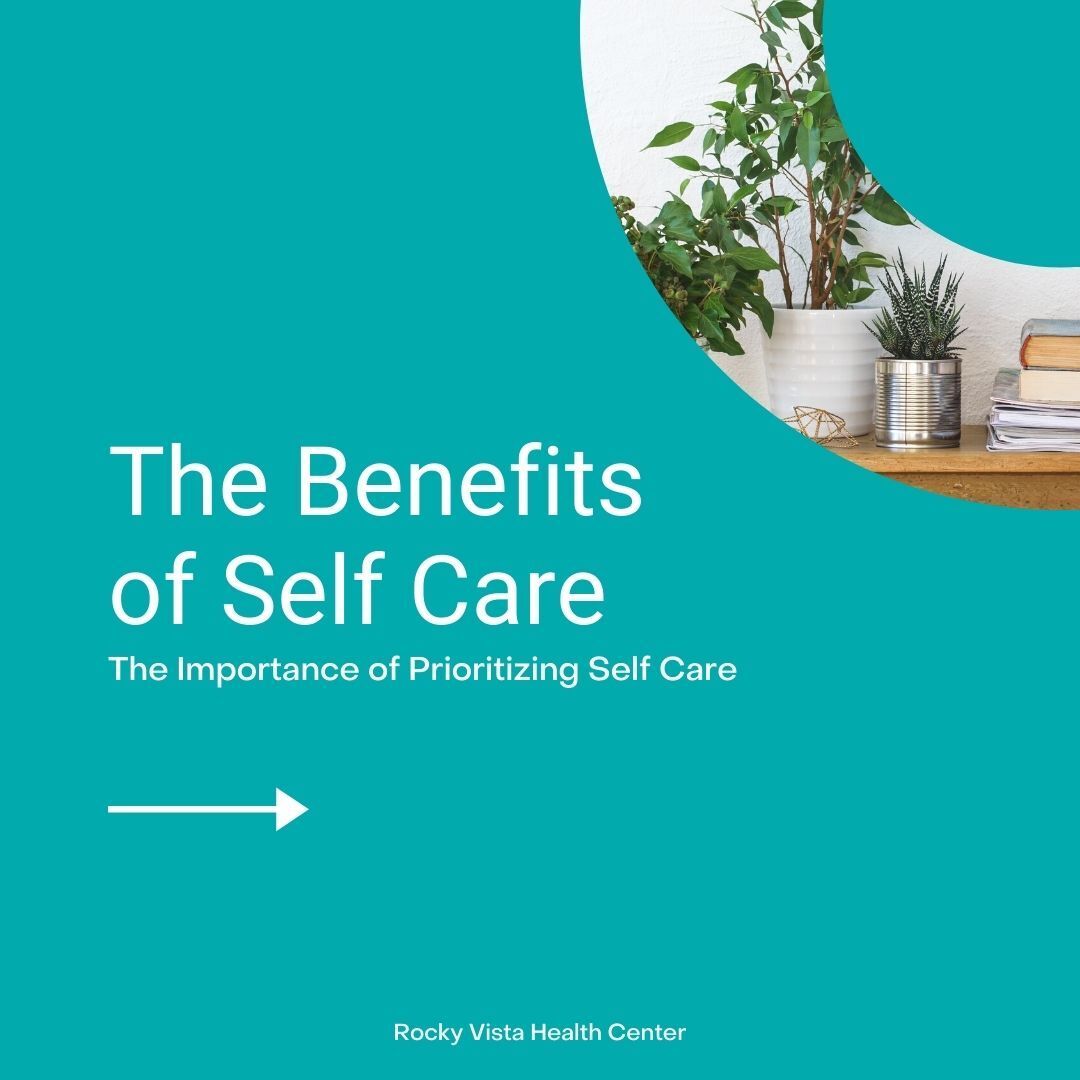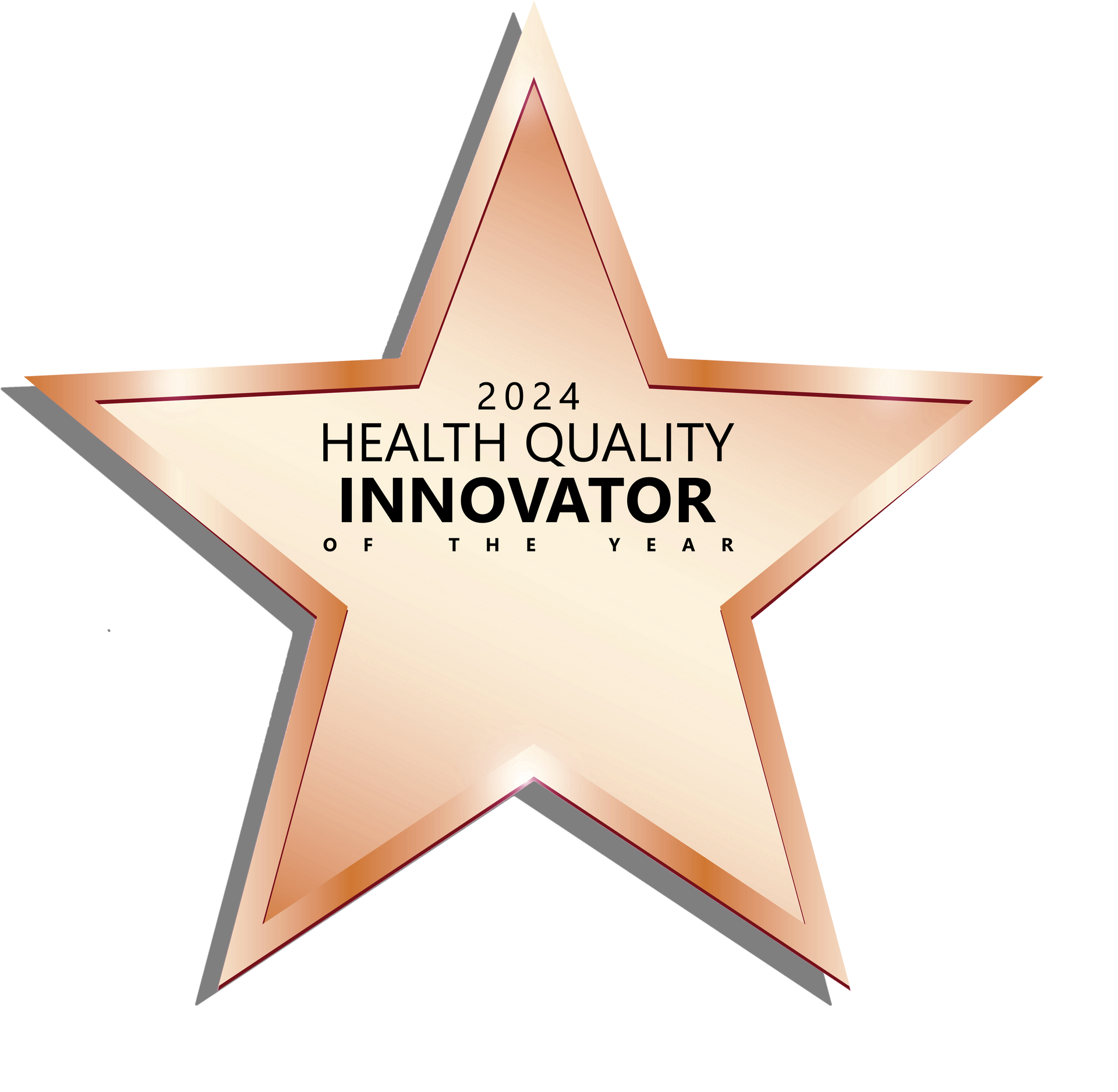The Importance of Prioritizing Self-Care | Rocky Vista Health Center

Self-care means different things to different people, but fundamentally, it comes down to one thing—taking care of yourself physically, mentally, and emotionally. The type of self-care you engage in is based on what feels good to you, but ultimately it will help you prepare yourself to deal with all the stresses in life in the most healthy way possible.
Lately, the concept of self-care has been getting increasingly popular. In fact, according to Google trends, the number of searches for the term “self-care'' has more than doubled since 2015.
At Rocky Vista Health Center, we believe in integrated health care, and this includes self-care. If you’re new to the concept of self-care or want to learn how to practice it in the best way possible, you’re in the right place. We’re here to take a deep dive into the topic and how you can use it to live your best life.
What Is Self-Care?
Self-care is the practice of consciously engaging with activities that will make you holistically healthier—eating healthy, exercising, and sleeping well, for example. The choice to engage in self-care is the choice to take care of yourself and your wellbeing. The world can be a stressful place, but self-care can help people learn how to navigate through it more easily.
While self-improvement is about looking towards the future with a somewhat perfectionist mindset, self-care is about learning to exist in the now—to nurture yourself and your life.
Why Is Self-Care Important?
There’s a common misconception that self-care activities only cover the things that make you feel comfortable, or indulging beyond your means. Self-care can mean relaxing and unwinding after a long day of work, but it can also mean doing the work you’ve been putting off for a while. It’s doing what you need to do to make sure you feel healthy and happy.
You might have noticed that a stressor on a bad day seems so much bigger than it would’ve on a good day. Practicing self-care essentially means that when these stressors come, you are equipped to deal with them in the best way you can. It’s difficult when you have so many responsibilities to take care of, but that’s what makes self-care all the more important. Whether it’s taking a bubble bath or forcing yourself to get through that big project, self-care is about taking accountability for yourself, understanding your needs, and providing for them.
8 Types of Self-Care
Self-care can be divided into eight main categories that cover everything you need to focus on to maintain an optimal level of health:
- Physical. Physical self-care is practiced by giving your body the exercise, nutrition, hygiene, and rest that it needs to function well.
- Emotional. Practicing emotional self-care is about improving your emotional intelligence (EQ) by learning how to validate yourself and increasing emotional awareness.
- Psychological. Mental health is as important as physical health, and your mind needs to consistently engage with creative skills, mindfulness, and stress management.
- Professional. Professional self-care can be practiced by establishing clear boundaries, enjoying your purpose, and taking opportunities to grow.
- Social. Support systems are extremely important for people to feel safe and happy, whether they are friends, family, or coworkers.
- Financial. Financial self-care involves being aware of your financial health and taking accountability in order to make good financial decisions.
- Spiritual. Spiritual self-care is all about having a guiding principle in life, something you use to ground yourself and improve as a person.
- Environmental. The space around you is important. Taking the time to change your immediate environment can greatly affect the quality of your life.
For even more great information on the types of self-care, check out our online resource here.
Benefits of Self-Care
Self-care is a way to revitalize your energy and make sure you’re ready to handle whatever comes your way in a safe and healthy way. We live busy lives and it can be easy to forget our needs, but taking the time to engage in self-care will make your life better in all aspects.
Boosts Physical Health
A big part of self-care is learning about how to fulfill your body’s needs, whether that means exercising more or developing a solid sleep schedule.
Improves Mental Health
Although self-care isn’t a substitute for getting professional help if you need it, engaging with self-care frequently can protect and improve your mental wellbeing.
Reduces Stress
A common theme in self-care is practicing mindfulness and checking in on yourself through meditation, yoga, journaling, and similar activities.
Increases Self Esteem
Self-care is about learning to treat yourself with kindness and compassion every day. This can have a positive impact on your self-esteem, which in turn helps with self-improvement.
Enhances Your Relationships
The more happy, healthy, and fulfilled you are, the more likely you are to have better relationships. You can’t pour from an empty cup, after all.
How Does Self-Care Affect Physical Health?
Self-care is about integrated wellness, and your physical well-being plays a big role in your overall well-being. Committing to look after your body will help you feel better in the moment and the long run.
Self-Care Activities to Improve Physical Health
● Exercise: Whether it’s an intense workout at the gym or a 15-minute walk in between work, exercise is an excellent self-care practice.
● Nutrition: Make sure you have a balanced diet, drink plenty of water, and reduce intake of too much sugar or caffeine.
● Sleep: Getting enough sleep is extremely important, so work on building a sleep schedule that works for you.
How Does Self-Care Affect Mental Health?
Self-care to improve your mental health isn’t as straightforward as for your physical health, but it’s just as important. Making an effort to schedule time for self-care, even if it’s just for simple breathing exercises, can have a hugely positive impact on your mental health.
Self-Care Activities to Improve Mental Health
● Relaxing activities: Explore meditation, muscle relaxation, and mindfulness. There are several resources available that you can incorporate into your daily routine. Another way to practice introspection and get in touch with yourself is through journaling.
● Gratitude: Practicing gratitude is a conscious decision that will help you develop a healthier and happier mindset. While you don’t need to feel happy and grateful all the time, finding joy in the small things in life can change the way you experience the world.
● Set boundaries: A lot of people find themselves unable to cope with all the responsibilities they have. It’s important to set boundaries and prioritize what needs to be done now and what doesn’t. Most importantly, it’s okay to say no. Rather than setting impossible standards and blaming yourself for not achieving them, set realistic standards and be mindful of what you have managed to achieve.
● Stay connected: Having a strong support system to reach out to can be extremely helpful when you need emotional or practical help. While it’s important to be self-sufficient, it’s equally important to know when you need help and ask for it.
How You Can Implement a Self-Care Routine
Self-care looks different for everyone, and that’s why it’s important that you take the time to understand what works for you. Many people assume that self-care is time-consuming and something you need to set aside time for, but that’s not the case. Self-care is a series of steps or actions you can implement into your daily routine as it is. We all sleep, eat, work, and move every day anyway, and self-care is just a question of how you can consciously do these things in a positive way.
Think of self-care as a pile of building blocks. You can start small with a single block—maybe you decide to walk 15 minutes a day, or clean up a bit every day, or eat one healthy meal a week. Once these actions become natural to you, you can add another one, until you find yourself in a healthier and happier place.
How to Create a Self-Care Checklist
There’s, unfortunately, no one-size-fits-all approach to self-care, since self-care is about your unique needs and how you can fulfill them. While the activities mentioned above are all useful, a self-care checklist that will work for you is something you need to develop yourself. It might take some time and experimentation, but it’s an investment that will pay off in the long run.
You don’t have to start from scratch, however, as there are some steps you can follow while creating this routine for yourself:
- Find out what brings you the most joy.
- See how you can incorporate those things into your daily life.
- Set realistic and measurable goals.
- Evaluate your routine after a week.
- Be open to change as your life develops.
At Rocky Vista Health Center, we believe that holistic self-care is a necessity for every person, and that’s why our primary care providers work to ensure that all your needs are met. We offer a variety of services to ensure the health and well-being of adults in Parker, CO, so get in touch or schedule an appointment today!
Keep Your Friend's Informed












